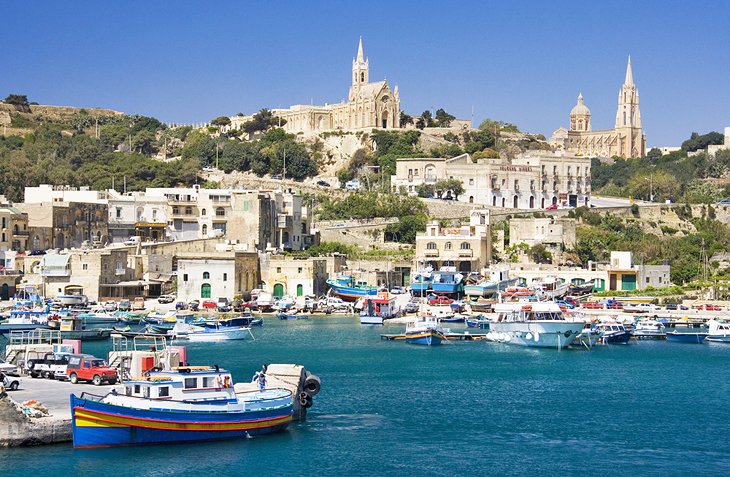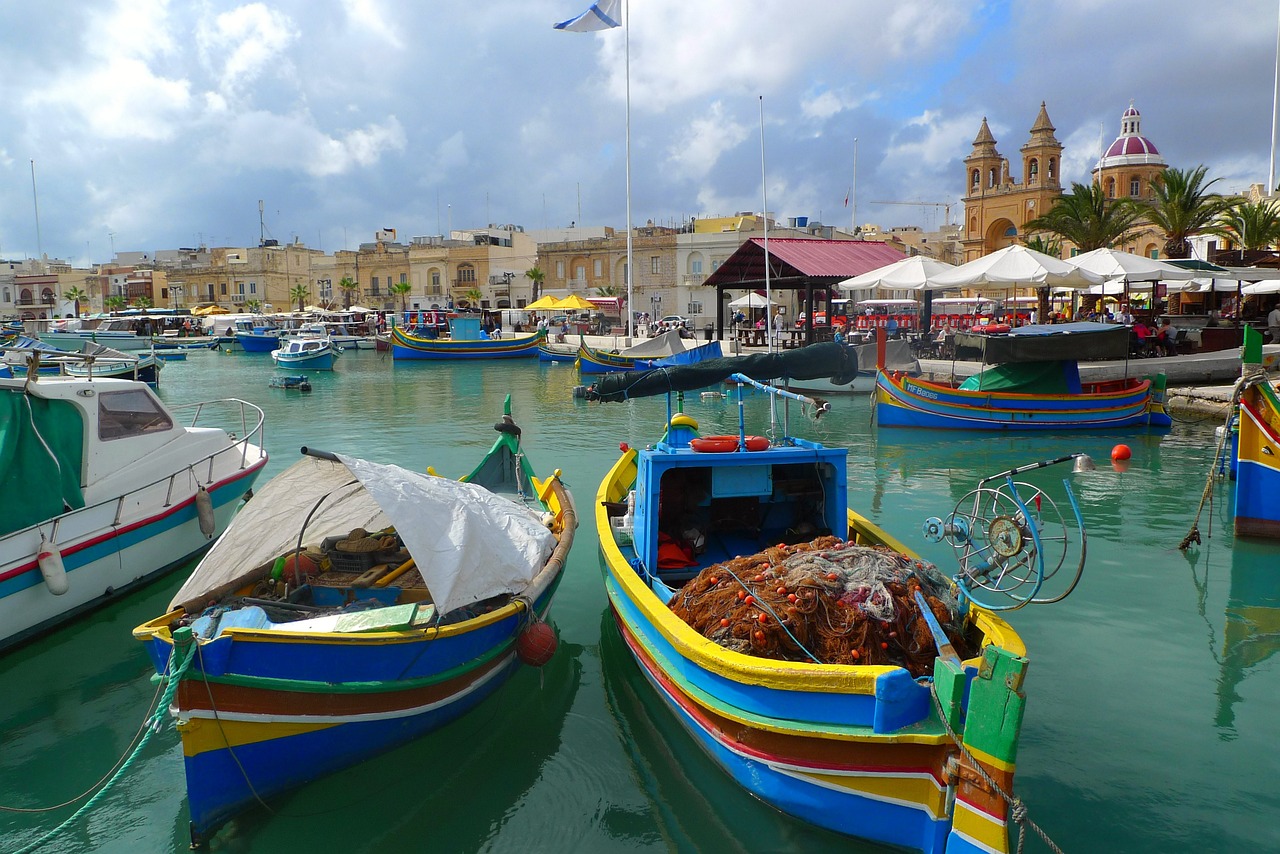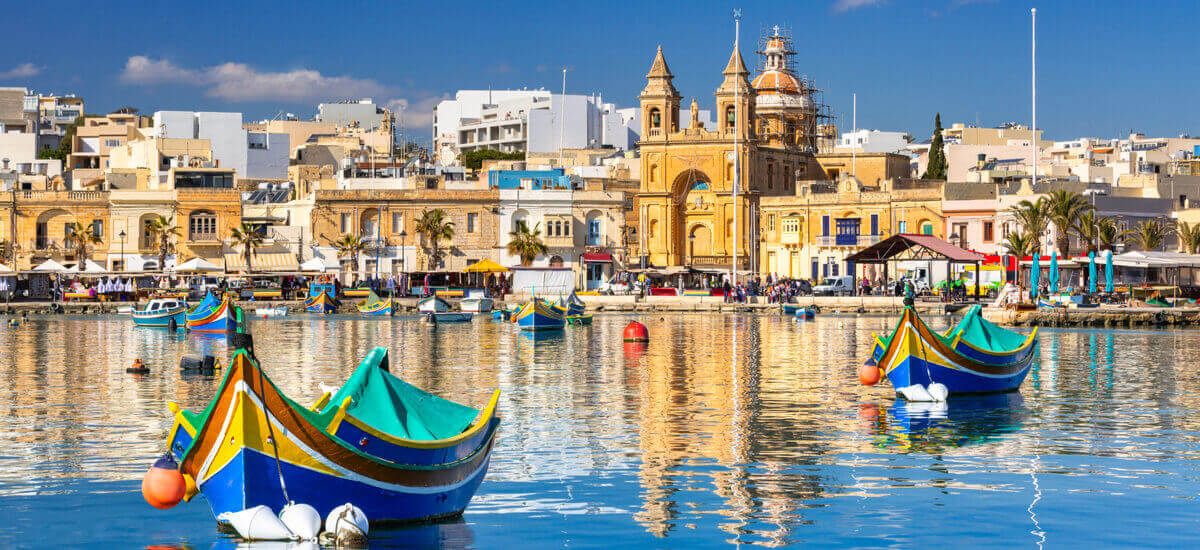Moving to Malta is like stepping into a sun-kissed paradise, where the allure of tax benefits, pleasant weather, and a welcoming expat community beckons. Just as a lighthouse guides ships through treacherous waters, Malta’s favorable tax rates serve as a beacon, attracting individuals seeking a new home and financial advantages. This Mediterranean jewel offers a diverse range of housing options, from vibrant urban neighborhoods to serene, secluded areas, ensuring that everyone can find their perfect haven. The real estate market in Malta is thriving, offering an array of choices, while rental options are readily available, with most apartments furnished for convenience. Residence permits further encourage expats to invest in Malta, providing a secure foundation for their new life. As you embark on this exciting journey, consider the needs of your family and pets, as Malta’s family-friendly environment and pet-friendly policies ensure a smooth transition. With its friendly and easy-to-integrate expat community, Malta welcomes you with open arms, offering a gateway to endless possibilities and the freedom to create a new beginning.
Key Takeaways
- Moving to Malta offers favorable tax rates and lovely weather.
- Malta has a thriving expat community that can assist with move details and questions.
- Residence permits in Malta encourage property investment and finding a job or setting up a business is relatively easy due to the thriving economy.
- Malta offers access to Europe and a lower cost of living compared to Australia.
Moving to Malta: What to Expect
Moving to Malta offers a range of benefits, including favorable tax rates, pleasant weather, and a thriving expat community, making it an attractive choice for relocation. However, there are certain transition challenges to consider. The cost of living in Malta is generally lower compared to Australia, but car ownership and operation can be more expensive. It is important to note that Brits moving to Malta may face uncertainty due to Brexit, although the Maltese government has plans in place for a no-deal scenario. On the other hand, Ireland is an easy place to move from, but a valid passport is required as it is not part of the Schengen zone. Americans may experience culture shock, but English is widely spoken in Malta, which eases the transition. Overall, relocating to Malta is a significant life step that offers numerous advantages for those seeking a new beginning.
Establishing a Home
When establishing a home in Malta, individuals have a range of options available, from urban neighborhoods to secluded corners, depending on their preferred lifestyle. Here are three important considerations when deciding where to live in Malta:
-
Urban vs Rural Neighborhoods: Malta offers a diverse range of neighborhoods, each with its own unique charm. Urban areas like Valletta and Sliema are popular choices for those seeking a vibrant city life with easy access to amenities, restaurants, and entertainment. On the other hand, rural areas like Gozo and Marsaxlokk offer a more peaceful and scenic environment, perfect for those who prefer a quieter lifestyle and enjoy being close to nature.
-
Cost of Living: The cost of living in Malta can vary depending on the location. Urban areas tend to be more expensive, with higher rental and property prices, while rural areas offer more affordable housing options. It’s important to consider your budget and lifestyle preferences when choosing a neighborhood in Malta.
-
Access to Amenities: Another factor to consider when establishing a home in Malta is the proximity to essential amenities such as supermarkets, schools, healthcare facilities, and public transportation. Urban neighborhoods generally have better access to these amenities, making daily life more convenient.
Overall, when choosing a place to live in Malta, it’s important to consider the urban vs rural lifestyle, the cost of living, and the accessibility to amenities that best align with your preferences and needs.
Real Estate and Rental Options
One important aspect to consider when establishing a home in Malta is the availability of real estate and rental options, which cater to a diverse range of preferences and budgets. Whether you prefer to buy or rent, Malta offers a hot real estate market with a variety of housing options. For those looking to buy, popular neighborhoods include Sliema, St. Julian’s, and Valletta, which offer a mix of historical charm and modern amenities. These areas are also known for their proximity to the sea and vibrant nightlife. On the other hand, if renting is more suitable for your situation, most apartments in Malta are furnished and offer convenient amenities. From urban neighborhoods to secluded corners, Malta provides a multitude of choices to suit different lifestyles and budgets.
Residence Permits and Schemes
Residence permits and schemes in Malta provide expats with various options for establishing legal residency and investing in property. These schemes are designed to attract foreign individuals and families to live and work in Malta. Here are four key points about residence permits and schemes in Malta:
-
Types of residence permits in Malta: Malta offers different types of residence permits, including the Global Residence Programme, Malta Residency and Visa Programme (MRVP), Malta Retirement Programme, and Residence Programme. Each permit has its own specific requirements and benefits, such as tax incentives, ease of travel within the Schengen area, and access to healthcare and education.
-
Benefits and requirements of Malta’s residency schemes: The residency schemes in Malta offer a range of benefits, including favorable tax rates, visa-free travel within the Schengen area, and the ability to live and work in Malta. However, each scheme has its own requirements, such as a minimum investment in real estate, proof of financial stability, and a clean criminal record.
Overall, these residence permits and schemes in Malta provide expats with the opportunity to establish legal residency, invest in property, and enjoy the benefits of living in this beautiful Mediterranean country.
Considerations for Family and Pets
Considerations for relocating to Malta with family and pets include evaluating health insurance options and ensuring compliance with the specific requirements for bringing pets into the country. When moving to Malta with pets, it is important to be aware of the requirements and process for bringing them into the country. For pets coming from within the EU, an EU pet passport and vaccinations are required. Additional requirements apply for pets coming from outside the EU, such as microchipping and rabies vaccinations. Dogs also need to be treated for tapeworm and a health certificate is required. A pre-notification form needs to be filled out before arriving in Malta, and a pet inspection is required at the official border inspection point. Malta has strict but feasible rules for bringing pets, including dogs, cats, and ferrets.
When moving to Malta with family, it is important to consider health insurance options. Expats should evaluate the available health insurance plans to ensure that their family’s medical needs are adequately covered. Additionally, schooling options should be taken into account. Malta offers a range of international schools that provide education in English, making the transition easier for expat children. It is advisable to research and visit different schools to find the best fit for the family. By considering these factors, relocating to Malta with family and pets can be a smooth and enjoyable experience.
Frequently Asked Questions
What are the tax benefits of moving to Malta?
Moving to Malta offers tax benefits such as favorable tax rates and residence permits encouraging property investment. Job opportunities are abundant due to the thriving economy. Expats can take advantage of these benefits while enjoying Malta’s lovely weather and expat community.
How do I go about finding a job or starting a business in Malta?
Job opportunities in Malta are abundant, thanks to its thriving economy. Various industries, such as finance, iGaming, and technology, offer employment prospects. Additionally, entrepreneurship opportunities exist, with a supportive business environment and government incentives for startups.
What are the requirements for obtaining a residence permit in Malta?
To obtain a residence permit in Malta, individuals must meet certain requirements and go through an application process. These requirements include proof of financial stability, health insurance coverage, a valid passport, and a clean criminal record. The application process involves submitting the necessary documents and paying the required fees. Once approved, the residence permit allows individuals to legally reside and work in Malta.
Can I bring my pets with me when moving to Malta?
Pet relocation to Malta is possible, with specific quarantine regulations in place. EU pet passport and vaccinations are required for pets from within the EU. Additional requirements apply for pets from outside the EU, including microchipping and rabies vaccinations.
What is the expat community like in Malta and how can they assist with the move?
The expat community in Malta offers support to newcomers, particularly in finding accommodation. They can provide valuable information and assistance in navigating the housing market and connecting with landlords or real estate agents.













